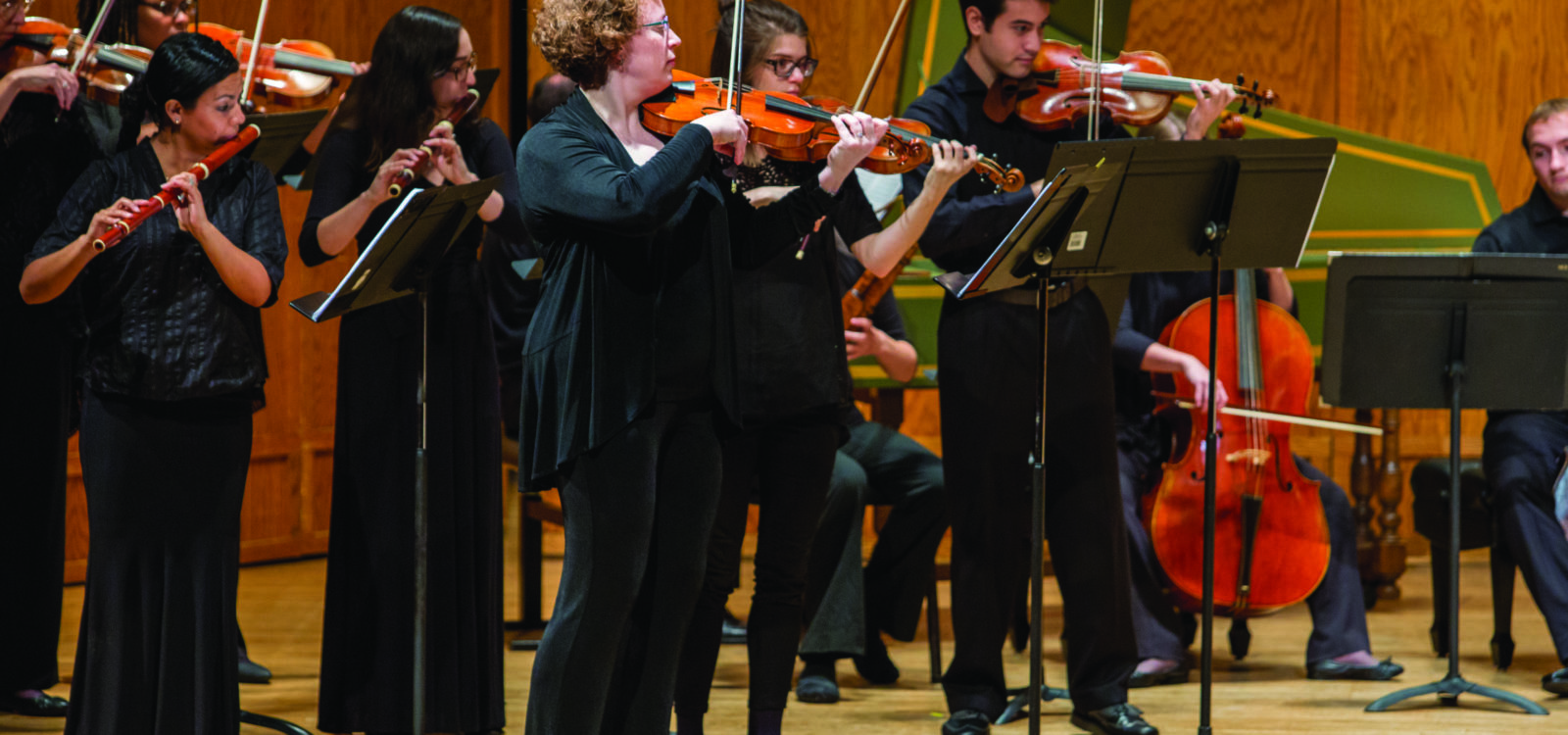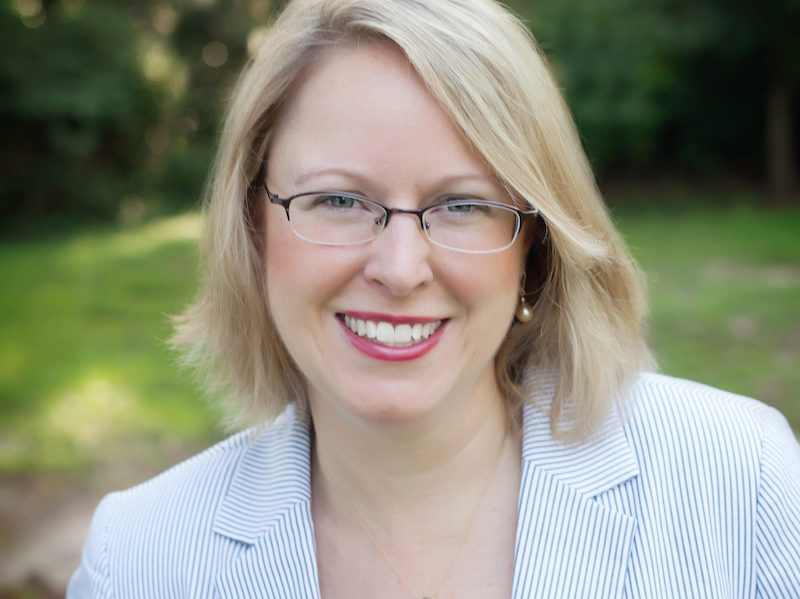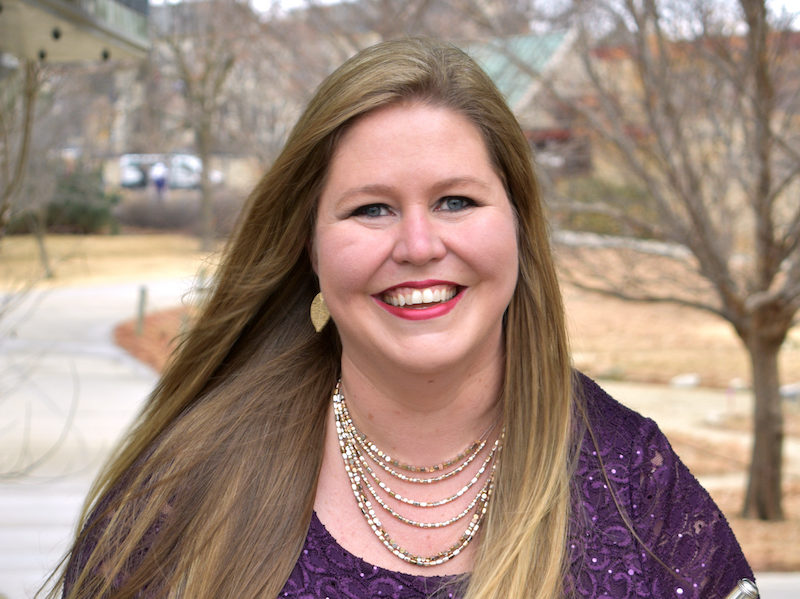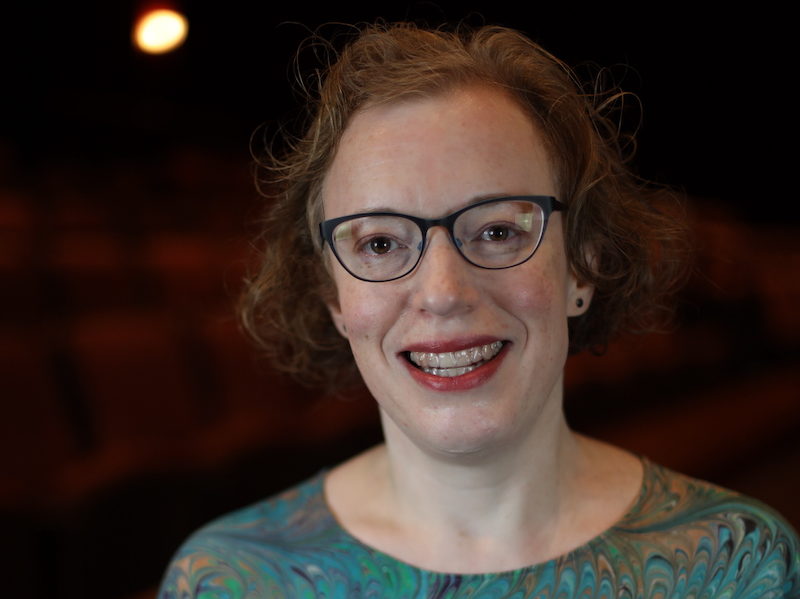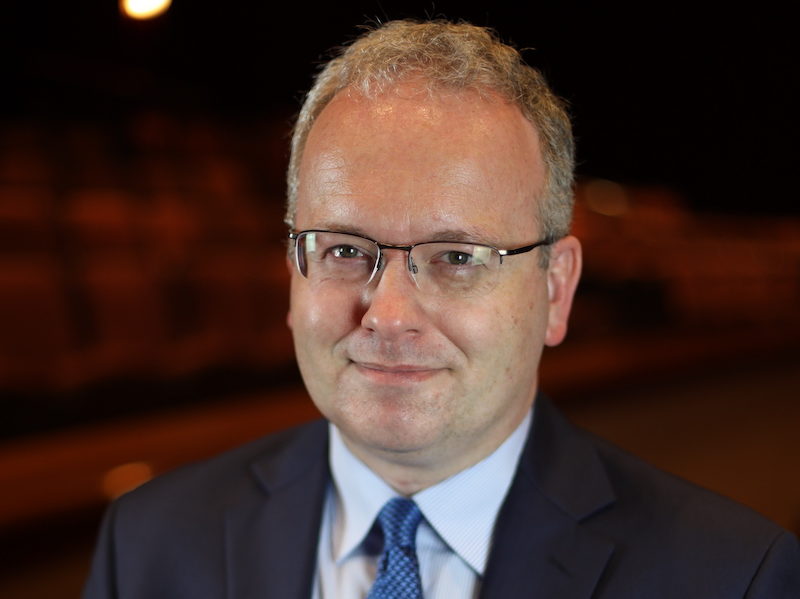Offering coursework in historical musicology and numerous applied performance opportunities
FSU’s early music program is dedicated to supporting the musical education of undergraduate and graduate students by supplementing their studies in other areas of the College of Music. The program serves as an important historical performance component for training on modern instruments, as well as an accompaniment to the music history courses offered by FSU’s Musicology Area. FSU’s early music ensembles also participate in community service, and have performed throughout the Tallahassee community at schools, local venues, and festivals, and have appeared on the local public radio station and FSU Headlines.
Ensembles are open to any degree-seeking student at FSU.
For more information about the early music program, please contact:
Sarah Eyerly
Director of the Early Music Program
College of Music
Florida State University
Tallahassee, FL 32306-1180
850-644-3424
seyerly@fsu.edu
Specialized Studies
The Early Music Program offers specialized studies certificates in Early Music and Baroque Flute for graduate students. Please click here for more information. Interested students should contact Sarah Eyerly (Early Music) for an advising appointment.
Instrumental and Vocal Ensembles
Expand AllInstrumentalists enrolled in the Collegium Musicum gain skill in the performance of Medieval and Renaissance musical repertories using historically-informed performance practices and period instruments.
Recorders (Beginning and Advanced)
The Renaissance recorder consort is divided into two groups. Beginning recorder players are taught fundamental woodwind techniques applicable to the instrument, including breathing, articulation, fingering systems, transposition, and basic chamber music skills. The beginning recorder class does not require any previous experience on the instrument, and recorder does not have to be your primary instrument. The advanced recorder group is comprised of students who have one or more semesters of recorder-playing experience. The advanced recorder group performs a wide variety of repertoire, from Renaissance polyphonic music to twentieth and twenty-first century works.
Crumhorns
The crumhorn is a Renaissance capped, double reed instrument with a nine-note range. The crumhorn operates like the chanter of a bagpipe and was often used for outdoor performances. The crumhorn consort at FSU performs Renaissance dance music and polyphonic pieces. They also recently gave a world premiere of a commissioned work. Crumhorns are quirky instruments, but fun to play!
Other Instruments
Additionally, consorts of shawms, sackbuts, and racketts are offered on a semester-by-semester basis. When available, mixed (multi-instrument) ensembles provide a unique opportunity to blend several of these instrument groups into one consort.
FSU also owns several plucked string instruments, including two lutes and a theorbo, as well as a consort of viols, bagpipes, Renaissance flutes, a hurdy-gurdy, a continuo organ, and a regal. Students may choose to play these instruments in mixed consorts where appropriate.
Course numbers: MUN 2471/4474/5477, section 1
Instructor: Sarah Eyerly (seyerly@fsu.edu)
Singers enrolled in the Early Vocal Ensemble participate on a semester-by-semester basis in an early music choir or in small chamber ensembles in partnership with the Collegium Musicum or Baroque Ensemble. Singers gain skill in the vocal performance of Medieval, Renaissance, Baroque, and Classical musical repertories using historically-informed performance practices.
Click here to learn more about our recent recording of eighteenth-century hymns in the Mohican language.
Course numbers: MUN 2471/4474/5477, section 2
Instructor: Sarah Eyerly (seyerly@fsu.edu)
The Baroque Ensemble specializes in the performance of seventeenth- and eighteenth-century music, especially of lesser known composers, using historically-informed performance practices and period instruments. The Baroque Ensemble can range from small chamber music groups of 2–3 people to a full size Baroque Orchestra for larger projects and operas, most recently a concert of C. P. E. Bach’s orchestral works and Claudio Monteverdi’s L’incoronazione di Poppea. Instrumentalists perform on period instruments at A=415 pitch. The FSU College of Music Instrument Library has a wide collection of string, wind, and plucked instruments (including a theorbo) for students to borrow and learn how to play. The following historical keyboard instruments are also available for performance:
- Flemish style transposing two manual harpsichord by William Dowd
- French style transposing two manual harpsichord by William Down
- Flemish style continuo harpsichord kept at A=440 by Harley J. Day, Jr. and Michael Batell
- Italian style single manual harpsichord by Robert Duffy
- Folding Regal made in 1976 by Christopher Clarke, a copy of an instrument made by Michel Klotz from c.1600, Nuremberg Museum in Germany, Made in 1976 by Christopher Clarke.
- Continuo organ, transposing, three ranks, by Bennett-Giutarri, including hand bellows
Course numbers: MUN 2472/4475/5478
Advanced
Students study the fundamentals of continuo playing, primarily playing the harpsichord but also the organ. The repertoire to be studied focuses on the seventeenth and eighteenth centuries
Course number: (MVK 3930/5935)
Instructor: Iain Quinn (iquinn@fsu.edu)
Harpsichord lessons can be taken by students whose primary instrument is the organ or piano. Interested students should contact Dr. Quinn one semester before they intend to register for lessons. Repertoire studied includes major works of the Baroque and pre-Baroque, drawing on the English, French, German, Italian, and Dutch schools.
Instructor: Iain Quinn (iquinn@fsu.edu)
The beginning Baroque flute class aims to help students achieve basic proficiency on traverso both technically and musically. Students will develop an understanding of historical performance-practice principles such as ornamentation and basic articulation patterns. Additional emphasis is placed on understanding the acoustical design properties of the Baroque flute and how this relates to musical interpretation and tone production.
Course number: (MVW 5705)
The advanced Baroque flute class enhances each student’s knowledge of performance-practice principles, eighteenth-century solo and ensemble flute repertoire, and the primary and secondary sources available to modern traverso players. Additionally, students build on the technical and tonal skills acquired during the beginning Baroque flute class and deepen their knowledge of historical background through research. Examples of class topics include articulation, agogic expression, extemporaneous ornamentation, sound production and tone color, national styles, and Baroque dance.
Course number: (MUS 5939)
